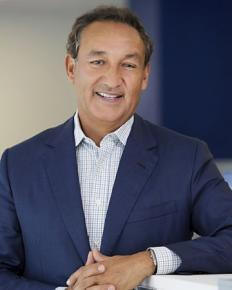|

United CEO suffers heart attack, shares
drop even lower
 Send a link to a friend
Send a link to a friend
[October 17, 2015]
By Jeffrey Dastin and Alwyn Scott
(Reuters) - United Continental Holdings
Inc's <UAL.N> new chief executive has suffered a heart attack, a person
familiar with the matter said on Friday, barely a month after he took on
the job of improving the airline's profitability and reputation.
|
|
 The board at United - the No. 2 U.S. carrier by capacity - was
informed "promptly" after Oscar Munoz was taken to hospital, the
person said. The board at United - the No. 2 U.S. carrier by capacity - was
informed "promptly" after Oscar Munoz was taken to hospital, the
person said.
"There's no reason for the board to meet," the person said. "We're
still gathering information about his medical condition and
prognosis."
United's previous chief executive left while federal authorities
were conducting an investigation involving the Port Authority of New
York and New Jersey.
United's shares closed down 3.1 percent, at a one-week low of
$55.97. They have dropped nearly 17 percent this year.
In a statement on Friday, the airline said Munoz, 56, had been taken
to hospital on Thursday. It gave no further details.
"Our thoughts and prayers are with his family and we are respecting
their privacy," it said, noting that the airline was operating
normally.
 United Continental has been plagued by complaints by customers and
employees in recent years, many related to its struggles to merge
the operations of the former United and Continental airlines.
Munoz has made tackling those problems a top priority.
Shortly after taking over, Munoz told employees in a letter that he
would meet with as many workers as possible and "hear about
operations directly from you".
Munoz had been scheduled to hold a labor summit with union leaders
on Thursday. Mike Klemm, head of the local branch of the
International Association of Machinists, said he was informed midday
Thursday that it had been postponed.
"They told us he had a personal emergency," he said. "We wish Mr.
Munoz a speedy recovery and look forward to getting back to work
with him.”
The Wall Street Journal, which broke the story, reported that the
board was waiting to hear from doctors and Munoz's family about the
severity of the heart attack before deciding if the appointment of
an interim CEO was necessary.
A spokeswoman for United declined to comment on whether Munoz had
suffered a heart attack, his condition and whether the board had
been informed that he had been taken to hospital.
[to top of second column] |

United's failure to promptly announce Munoz's admission to a
hospital or the reason for it raised concerns about whether the
company was disclosing enough to investors.
“It is tragic but true that the health of the CEO is not a private
matter,” said Jeffrey Sonnenfeld, a corporate governance expert and
professor at the Yale School of Management.
“When someone assumes this responsibility, they surrender some of
the everyday rights of others," he said. "The CEO's health is
financially material information and has a huge impact on all key
constituencies from investors, media, and employees to customers,
suppliers, and regulators.”
Many companies, including Apple Inc <AAPL.O> and Goldman Sachs Group
Inc <GS.N>, have grappled in recent years with how to balance
executives' desire for privacy with investors' need to know the
state of their health.
The Wall Street Journal cited an "informed individual" as saying the
heart attack may have been mild and that Munoz could be back at work
in two weeks.
Regulation on the timing of such disclosures and how much detail is
required from companies and is not entirely transparent.
(Additional reporting by Michael Flaherty in New York and Sweta
Singh in Bengaluru; Writing by Christian Plumb; Editing by Louise
Ireland)
[© 2015 Thomson Reuters. All rights
reserved.]
Copyright 2015 Reuters. All rights reserved. This material may not be published,
broadcast, rewritten or redistributed.
 |